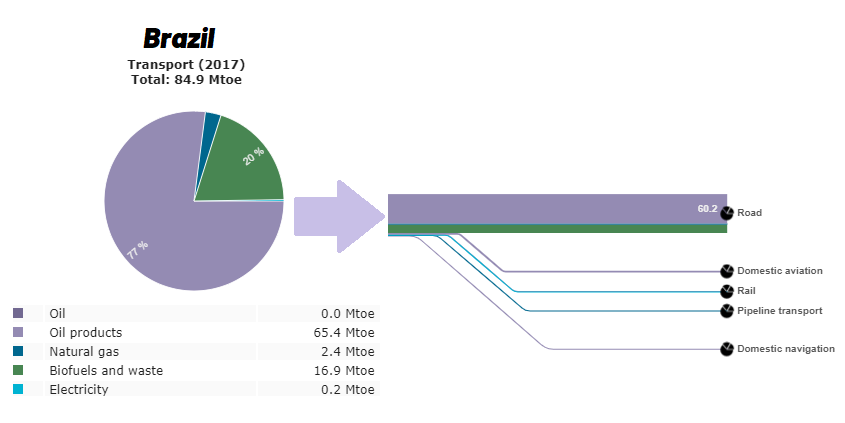
Uploaded on 2020-07-16 by Brenda da Silva Oliveira
1- Oil products imports, and natural gas. 2- Transport and industry. 3- The greatest use of fossil fuels in Brazil is for transportation, industry, and others (such as residential, commerce and public services, and agriculture) comprising 77%, 14%, and 25% of consumption in these sectors, respectively. Therefore, I believe that the biggest change to reduce CO2 in the country should occur, mainly, in the transportation field. In Brazil, the lack of transportation facilities cargo over long distances, such as railroads and pipelines, means that most of all products and raw materials are drained through the country's highways, increasing road flow and, consequently, emissions CO2, since these vehicles use fossil fuels. Thus, I think that investing in electric and collective transport to small and long distances, whether for products or people, would be a great way to improve the environment, such as electric rail. Other policies refer to harnessing the energy potential of the most diverse parts of Brazil, such as solar energy and wind energy, and also measures to try to change the people's behavior, encouraging the use of public transport, and bicycles for shorter distances, which also requires urban changes. Data image from: <https://www.iea.org/sankey/#?c=Brazil&s=Final%20consumption>, edited by me.